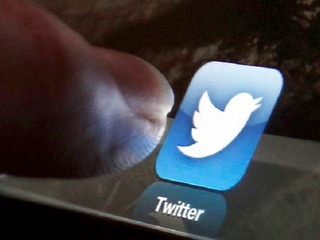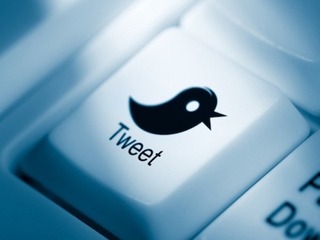The FDA outlines draft guidance on AI for medical devices
The agency also published draft guidance on the use of AI in drug development
Read more...
Like so many of you, I was absolutely gutted earlier this week when I learned about the death of Robin Williams, particularly when I learned about the circumstances. The questions that have come up in the wake of the tragedy, such as, "How could someone who made so many other so happy be so sad himself?" and "Was this preventable, and do we do enough to try to prevent other people from doing the same thing?" are important ones, and we should discuss them as a society.
If only everyone could be that thoughtful, though. Others (let's call them "soulless assholes") instead saw the tragic death of a beloved public figure as an opportunity to harass, and demean, his daughter on Twitter, forcing her to flee social media, perhaps for good.
In the wake of that incident, Twitter will now be reviewing some of its user protect policies, to stop something similar happening to other members in the future, the company has confirmed to VatorNews.
"We will not tolerate abuse of this nature on Twitter. We have suspended a number of accounts related to this issue for violating our rules and we are in the process of evaluating how we can further improve our policies to better handle tragic situations like this one," Del Harvey, Vice President of Trust and Safety at Twitter, said in a statement.
Specifically, he said that Twitter would be expanding its "policies regarding self-harm and private information, and improving support for family members of deceased users."
Following Robin Williams' death on Monday, his daughter Zelda released the following statement to the media, regarding her father and his legacy:
"Dad was, is and always will be one of the kindest, most generous, gentlest souls I've ever known," she wrote, in part, "and while there are few things I know for certain right now, one of them is that not just my world, but the entire world is forever a little darker, less colorful and less full of laughter in his absence. We'll just have to work twice as hard to fill it back up again."
Seems pretty heartfelt, right? Who could possibly have a problem with that?
Well, that statement somehow caused an unknown number of anonymous Twitter users to begin sending her messages that not only blamed her for her father's death, but, even worse, some started sending her photoshopped images of her father's dead body (stay classy, trolls).
In response, Williams announced that she would be abandoning social media, at least for the time being, but possibly a lot longer.
I'm sorry. I should've risen above. Deleting this from my devices for a good long time, maybe forever. Time will tell. Goodbye.
— Zelda Williams (@zeldawilliams) August 13, 2014
Frankly, I'm sure that Williams is not the first person who had something like this happen to her, but the power of celebrity trumps all else. I'm not saying that this incident is not worthy of attention; it is. It's just that, would people have been as outraged and would Twitter publicly be making statements if the same thing happened to you or me? I think not.
Hopefully what this all really means that at least one good thing, however unintentional, can come out of this horrific situation.
Twitter's crackdown efforts
Trolling on Twitter is a well-known problem, and one that the site has tried to combat in the past.
Last year, Twitter was forced to respond to an outcry over an incident where Caroline Criado-Perez, a freelance journalist who is also the co-founder of thewomensroom.org.uk and the Week Woman blog, was barraged with a series of rape threats, following her successful campaign to get Jane Austen's face onto the 10 pound note.
A petition was started to get Twitter to add a "report abuse" button to the site, which was already on the iPhone app, but not on desktop or Android. The petition eventually got over 140,000 signatures and Twitter, to its credit, took it seriously
The company announced in August of last year that it would be adding such a button to the rest of its platforms. It also revealed that it would begin working with the UK Safer Internet Centre to promote safety online, and that it updated its Rules to make targeted abuse illegal.
Those were steps in the right direction, but there is still a lot more Twitter can, and should do. The progress on protecting its users, and giving them the best experience possible on the site, however is incremental at best.
(Image source: taringa.net)
The agency also published draft guidance on the use of AI in drug development
Read more...The biggest focus areas for AI investing are healthcare and biotech
Read more...It will complete and submit forms, and integrate with state benefit systems
Read more...Startup/Business
Joined Vator on
Twitter is an online information network that allows anyone with an account to post 140 character messages, called tweets. It is free to sign up. Users then follow other accounts which they are interested in, and view the tweets of everyone they follow in their "timeline." Most Twitter accounts are public, where one does not need to approve a request to follow, or need to follow back. This makes Twitter a powerful "one to many" broadcast platform where individuals, companies or organizations can reach millions of followers with a single message. Twitter is accessible from Twitter.com, our mobile website, SMS, our mobile apps for iPhone, Android, Blackberry, our iPad application, or 3rd party clients built by outside developers using our API. Twitter accounts can also be private, where the owner must approve follower requests.
Twitter started as an internal project within the podcasting company Odeo. Jack Dorsey, and engineer, had long been interested in status updates. Jack developed the idea, along with Biz Stone, and the first prototype was built in two weeks in March 2006 and launched publicly in August of 2006. The service grew popular very quickly and it soon made sense for Twitter to move outside of Odea. In May 2007, Twitter Inc was founded.
Our engineering team works with a web application framework called Ruby on Rails. We all work on Apple computers except for testing purposes.
We built Twitter using Ruby on Rails because it allows us to work quickly and easily--our team likes to deploy features and changes multiple times per day. Rails provides skeleton code frameworks so we don't have to re-invent the wheel every time we want to add something simple like a sign in form or a picture upload feature.
There are a few ways that Twitter makes money. We have licensing deals in place with Google, Yahoo!, and Microsoft's Bing to give them access to the "firehose" - a stream of tweets so that they can more easily incorporate those tweets into their search results.
In Summer 2010, we launched our Promoted Tweets product. Promoted Tweets are a special kind of tweet which appear at the top of search results within Twitter.com, if a company has bid on that keyword. Unlike search results in search engines, Promoted Tweets are normal tweets from a business, so they are as interactive as any other tweet - you can @reply, favorite or retweet a Promoted Tweet.
At the same time, we launched Promoted Trends, where companies can place a trend (clearly marked Promoted) within Twitter's Trending Topics. These are especially effective for upcoming launches, like a movie or album release.
Lastly, we started a Twitter account called @earlybird where we partner with other companies to provide users with a special, short-term deal. For example, we partnered with Virgin America for a special day of fares on Virginamerica.com that were only accessible through the link in the @earlybird tweet.
What's next for Twitter?
We continue to focus on building a product that provides value for users.
We're building Twitter, Inc into a successful, revenue-generating company that attracts world-class talent with an inspiring culture and attitude towards doing business.



